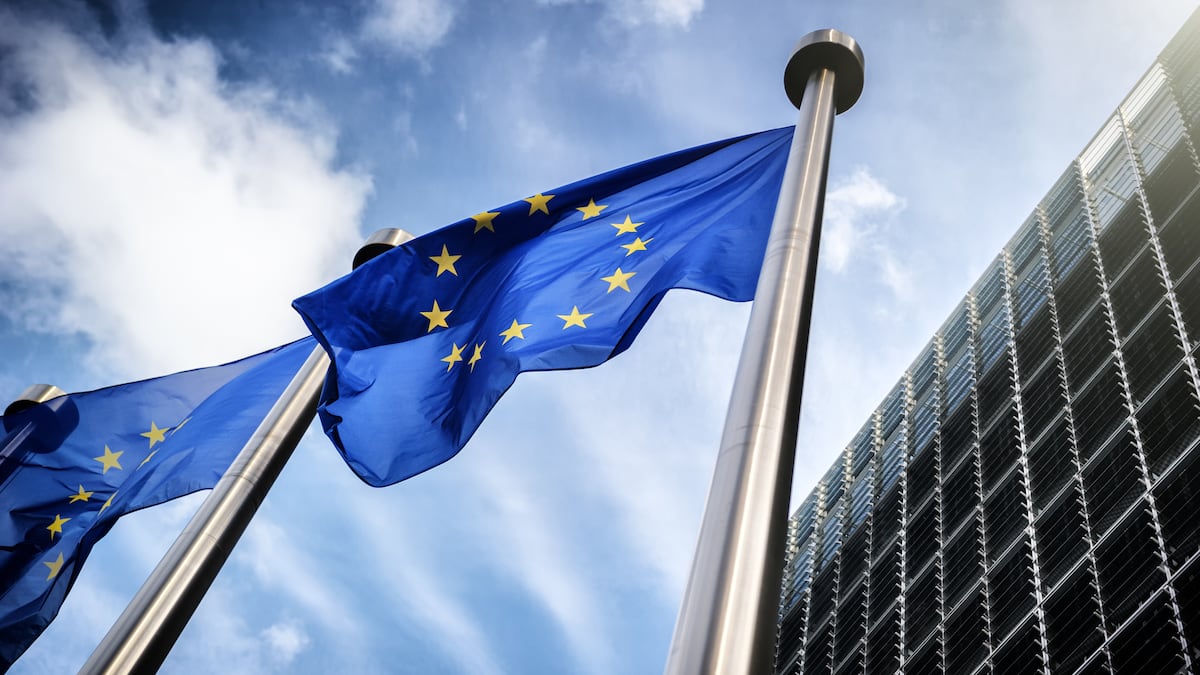- Crypto associations lay demands directed at the next EU administration.
- Industry’s biggest challenge is competing with stronger economies.
- EU Commission officials respond to the industry’s requests.
As European voters head to the polls across the continent, the crypto industry sent a clear message to European Union officials: Grow the sector. Keep momentum.
Some 373 million voters will cast ballots over the weekend in countries including Germany, France, and Spain for new leaders who will represent them in the European Parliament for the next five years.
The crypto industry has seized on the shifting political winds, laying out a roadmap in a manifesto that leaders say will sharpen incoming officials’ priorities.
The manifesto, signed by four trade associations, claims that the EU is fast losing ground to America and Asia in the race to host new digital economies.
The roadmap will be a “source of inspiration for the next policy cycle,” Joachim Schwerin, an economist at the European Commission who helps develop policy on Europe’s digital markets, told DL News.
Next five years
Schwerin said a stronger partnership between the public and private sectors is key.
“The next five years will be years of co-learning, advanced infrastructure and use-case development, and more meaningful moves towards interoperability based on industry-led standards.”
Unlike its US counterparts, EU regulators have provided the crypto industry with a set of regulations that they can operate within.
But the European industry faces a new battle: global financial hubs are competing for a growing army of crypto users.
Their manifesto suggests that blockchain technology could underlie systems for global trade transparency and cybersecurity, as well as push forward a potential $16 trillion tokenised economy.
The web3 industry is expected to increase from about $1 billion to almost $60 billion by 2028, according to a French industry report laying more policy recommendations published in May.
European competitiveness on trial
The industry requests come as European bigwigs warn against a decline in the bloc’s market competitiveness, already considered a laggard in the global race.
“In an era where technology increasingly dominates, Europe grapples with the challenge of keeping pace with swift global advancements,” Enrico Letta, Former Italian Prime Minister wrote in an April report.
He said the continent has failed in nurturing a strong ecosystem for the tech industry, and should prioritise mobilising private capital.
Letta is not alone commenting on Europe’s lethargic markets.
The EU makes up 11% of global equity market capitalisation, with the US at 45%, according to a report from the European Securities and Markets Authority.
“Greater commitment is needed to create a genuine single market for EU capital,” regulators wrote.
Mammoth task
“The EU has undertaken a mammoth task over the last five-year policy cycle to put legislation in place for the blockchain and digital asset industry, exploiting a state of regulatory infighting across the Atlantic to arrive in pole position,” said Erwin Voloder, head of policy at the European Blockchain Association.
This association published an additional open letter in April focused on blockchain infrastructures.
“We would hope to see a sharper focus on digital identity and blockchain for the real economy,” said Erwin Voloder, head of policy and the European Blockchain Association.
This trend is already emerging, as the EU passed digital identity legislation this year. And, as a win for blockchain advocates, the text includes a line about using zero-knowledge cryptography.
Voloder is among the trade association leaders who have sent hundreds of lawmakers their visions for the next mandate.
Over the past months, crypto organisations published a series of manifestos and open letters directed at the next EU administration.
While the US is taking strides towards establishing a regulation for crypto assets, major players have been embroiled in lawsuits over the grey zone of legal definitions of crypto assets.
MiCA first
Meanwhile the European industry is inching towards the implementation of the Markets in Crypto-Assets rulebook.
The regulation was a first globally, designed especially for crypto service providers and issuers. The rules come into force in phases from the end of June.
MiCA came alongside other laws countering money laundering and tightening financial service rules that implicate crypto firms completed since 2019.
But for now, when it comes to blockchain and crypto, the European Commission has its work cut out.
The European Commission will publish reports on developments in the realm of DeFi, NFTs and crypto lending by the end of the year. These are the instructions noted in the MiCA rulebook.
“The manifestos and wish lists cover these three issues, but also go beyond them,” an EU Commission official, who has seen some of the industry reports, told DL News.
“Experience with MiCA implementation and market developments will be determining factors on what — if anything — we may propose.”
